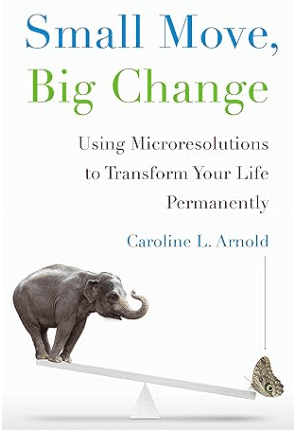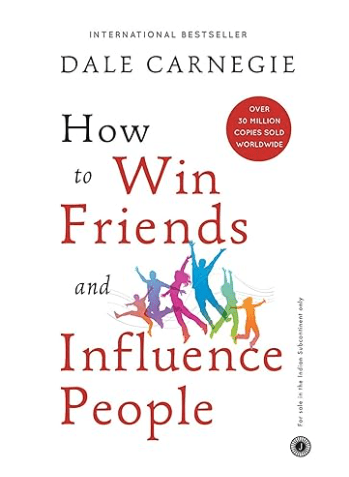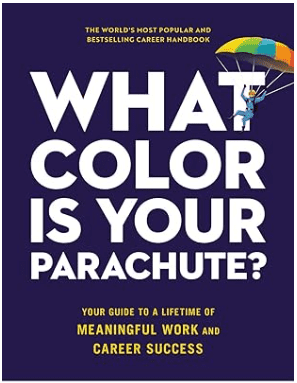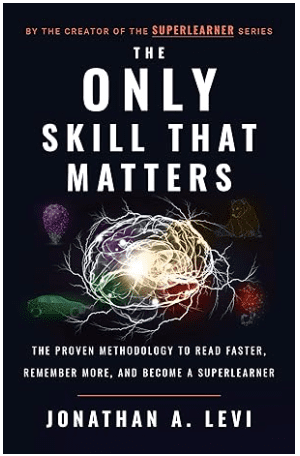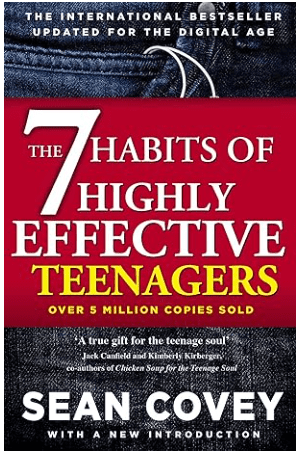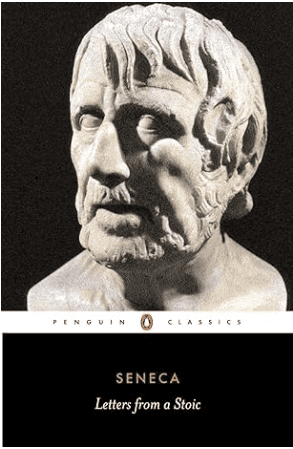Are you ready to embark on a journey of personal growth and self-improvement?
Look no further than the power of self development books. These literature gems have the ability to unlock your potential and equip you with essential skills for success.
From enhancing your communication abilities to cultivating discipline and resilience, these insightful reads offer the guidance you need to transform your life.
Key Takeaways:
- Discover the power of self development books in unlocking your potential
- Enhance your communication skills to achieve success
- Cultivate discipline and resilience through insightful reads
- Embrace personal growth and transform your life
- Equip yourself with essential skills for a prosperous future
Small Move, Big Change by Caroline Arnold
In “Small Move, Big Change” by Caroline Arnold, discover how to bring about meaningful change in your life through microsolutions.
This book provides practical strategies for making small, actionable behavioral modifications that can lead to significant personal growth and positive transformation.
“A microsolution is a small, manageable action that you can take to start moving toward your goal.”
Arnold emphasizes that it’s the cumulative effect of these small moves that ultimately leads to big change.
By breaking down goals into smaller, more achievable steps, you can overcome resistance and develop lasting habits.
Whether it’s adopting a new exercise routine, improving time management skills, or cultivating better communication habits, “Small Move, Big Change” offers valuable insights and actionable advice to help you make lasting improvements in various areas of your life.
Key Takeaways from “Small Move, Big Change”
- Making small, incremental changes is more sustainable and effective than trying to overhaul your life overnight.
- Focus on microsolutions: specific, actionable steps that bring you closer to your goals.
- Track your progress and celebrate small wins along the way to stay motivated.
- Find accountability partners or join communities that support your journey of personal growth.
Through “Small Move, Big Change,” Caroline Arnold empowers readers to take control of their lives and make meaningful improvements through small, manageable actions.
Embrace the power of microsolutions and unlock your potential for personal growth and positive transformation.
How to Win Friends and Influence People by Dale Carnegie
“How to Win Friends and Influence People” by Dale Carnegie is a timeless classic that delves into the intricacies of interpersonal relationships and effective communication strategies.
This book serves as a guide for transforming your interactions with others and achieving both personal and professional success.
“You can make more friends in two months by becoming interested in other people than you can in two years by trying to get other people interested in you.”
Carnegie emphasizes the importance of empathy and understanding in building strong connections with others.
He provides actionable techniques for improving communication skills, such as active listening, showing genuine interest, and offering sincere appreciation.
By applying these strategies, you can enhance your ability to influence and persuade others, leading to more harmonious relationships and productive collaborations.
This book also delves into the challenges of human behavior and offers valuable insights on how to overcome common weaknesses and effectively navigate conflicts.
It provides practical advice on handling criticism, resolving disagreements, and inspiring positive change in others.
Through real-life examples and anecdotes, Carnegie demonstrates the power of kindness, respect, and empathy in fostering meaningful connections and achieving personal growth.
Whether you’re striving for success in your career, enhancing your personal relationships, or seeking personal development, “How to Win Friends and Influence People” offers a wealth of practical wisdom and timeless principles that can transform your interactions and help you achieve your goals.
| Key Takeaways from “How to Win Friends and Influence People” |
|---|
| Develop empathy and genuine interest in others to build strong relationships. |
| Practice active listening and show appreciation to improve communication skills. |
| Overcome weaknesses in human behavior by cultivating kindness and empathy. |
| Handle conflicts and criticism with grace and inspire positive change in others. |
What Color Is Your Parachute? for Teens by Richard Nelson Bolles, Carol Christen, Jean M. Blomquist
Are you a high school or college student trying to navigate the competitive job market? Look no further than “What Color Is Your Parachute? for Teens” by Richard Nelson Bolles, Carol Christen, and Jean M. Blomquist.
This valuable resource is designed to provide career guidance specifically tailored to the needs and aspirations of young adults.
Based on the acclaimed Parachute Method, this book offers practical advice on choosing the right career path by understanding crucial factors such as income potential, required skills, and personality traits for success in different professions.
It empowers you to make informed decisions about your future, ensuring that you align your passion with a fulfilling career.
One of the key strengths of “What Color Is Your Parachute? for Teens” is its comprehensive approach to career planning.
It goes beyond traditional job search strategies and delves into self-assessment exercises that help you identify your strengths, values, and interests.
By gaining a deeper understanding of yourself, you’ll be better equipped to make choices that align with who you are as an individual.
The Parachute Method is a unique framework presented in the book that takes you through a series of steps to explore different career options and make informed decisions.
It encourages you to consider factors such as workplace culture, personal preferences, and the potential for growth and advancement in a chosen field.
This holistic approach ensures that you not only find a job but also embark on a fulfilling and rewarding career journey.
The Parachute Method
The Parachute Method, outlined in “What Color Is Your Parachute? for Teens,” consists of the following steps:
- Self-Assessment: Take stock of your strengths, values, skills, and interests to gain a clearer understanding of yourself.
- Exploration: Research different career options, industries, and job market trends to identify potential paths that align with your aspirations.
- Networking: Build meaningful connections with professionals in your desired fields to gain insights, advice, and potential job opportunities.
- Skills Development: Continuously enhance your skills and knowledge through education, internships, and relevant experiences to stay competitive in the job market.
- Job Search: Utilize effective job search strategies, including resume writing, interview skills, and online job portals, to secure employment in your chosen field.
- Decision Making: Evaluate job offers based on factors such as salary, work-life balance, company culture, and growth opportunities to make informed career decisions.
- Continuous Learning: Embrace lifelong learning and adaptability to thrive in a rapidly evolving job market.
By following the Parachute Method, you’ll gain clarity, confidence, and direction in your career journey. “What Color Is Your Parachute? for Teens” equips you with the tools and knowledge to make informed decisions, helping you pursue a fulfilling and successful future.
Table: Income Potential in Different Professions
| Profession | Average Annual Salary |
|---|---|
| Software Developer | $105,590 |
| Digital Marketer | $64,620 |
| Nurse | $75,330 |
| Financial Analyst | $85,660 |
| Graphic Designer | $52,110 |
Remember, finding the right career is not just about financial success but also about pursuing your passions and finding fulfillment.
“What Color Is Your Parachute? for Teens” offers invaluable guidance to help you discover the career path that best suits your unique combination of skills, interests, and values.
Start your journey towards a successful and fulfilling career today!
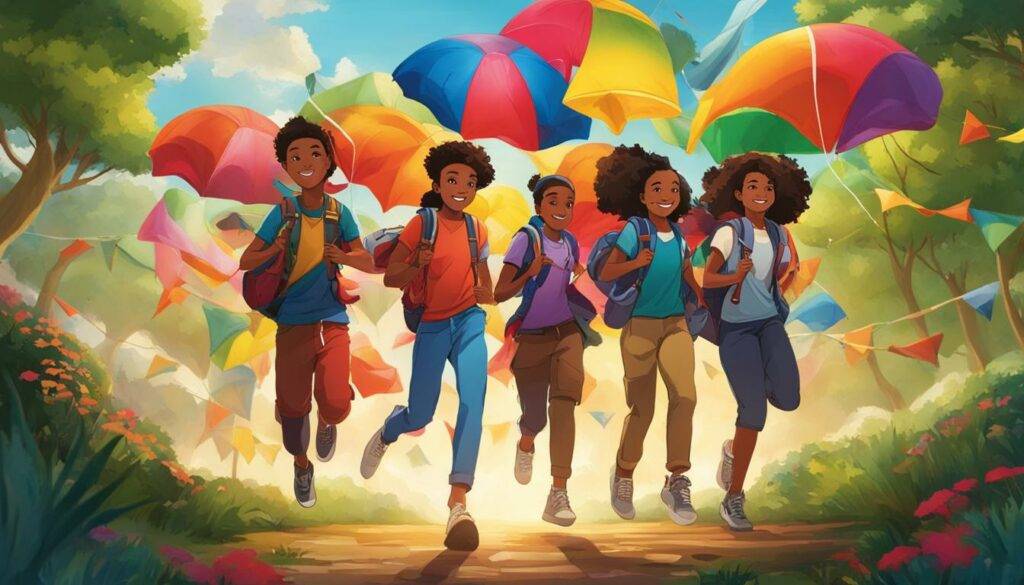
The Only Skill That Matters by Jonathan A. Levi
In today’s fast-paced world, information consumption has become more important than ever. With the constant influx of data and the ever-evolving demands of the future, it can be overwhelming to keep up.
That’s where The Only Skill That Matters by Jonathan A. Levi comes in. This insightful book offers practical guidance on how to navigate the information age effectively and prioritize what truly matters.
In The Only Skill That Matters, Levi emphasizes the importance of developing the skill of learning itself.
He provides strategies for improving your ability to consume, retain, and apply information, allowing you to stay ahead of the curve in an increasingly competitive world.
Levi’s book offers valuable insights into the art of prioritization, helping you focus on what is most relevant and valuable to your personal and professional growth.
“In an era where information is abundant but attention is scarce, mastering the skill of learning is the key to success.”
In addition to practical tips, The Only Skill That Matters also explores the psychology behind effective learning and provides actionable techniques for enhancing memory, concentration, and cognitive performance.
By implementing Levi’s strategies, you can harness the power of information to gain a competitive edge and achieve your goals.
Table: Key Strategies for Information Consumption
| Strategy | Description |
|---|---|
| Active Learning | Engage with the material actively by taking notes, summarizing key points, and asking questions to deepen understanding. |
| Chunking | Break down complex information into smaller, more manageable chunks to facilitate learning and retention. |
| Pomodoro Technique | Use focused bursts of work followed by short breaks to maintain productivity and prevent mental fatigue. |
| Mind Mapping | Create visual representations of ideas and concepts to enhance comprehension and memory recall. |
| Deliberate Practice | Engage in deliberate, structured practice to master new skills and deepen expertise. |
By adopting the strategies outlined in The Only Skill That Matters by Jonathan A. Levi, you can gain a competitive advantage in the information age.
Whether you’re a student, professional, or lifelong learner, this book will equip you with the essential skills needed to thrive in a world where knowledge truly is power.

Next, we will explore another powerful self-development book that focuses on the habits of highly effective teens.
The 7 Habits of Highly Effective Teens by Sean Covey
As a teenager, navigating the complexities of life can sometimes feel overwhelming. From managing friendships to developing self-esteem in the age of social media, there are many challenges to overcome.
That’s where “The 7 Habits of Highly Effective Teens” by Sean Covey comes in.
In this insightful book, Covey provides seven effective strategies for personal development and success. These habits serve as a guide to help teenagers build strong foundations for their future.
By incorporating these habits into their daily lives, teens can enhance their self-esteem, create meaningful relationships, and make better choices.
One of the key aspects this book addresses is the impact of social media on teenagers’ lives. Covey provides valuable insights into managing the pressures of social media, fostering a healthy online presence, and building authentic connections in a digital world.
“The greatest gift you can give someone is your time, because when you give your time, you are giving a portion of your life that you will never get back.” – Sean Covey
By following Covey’s guidance, teenagers can develop essential skills for personal growth and navigate life’s challenges with confidence.
With its practical advice, relatable examples, and inspiring quotes, “The 7 Habits of Highly Effective Teens” is a must-read for any teenager looking to unlock their full potential.
Table 6: The 7 Habits of Highly Effective Teens
| Habit | Description |
|---|---|
| Habit 1: Be Proactive | Take responsibility for your choices and actions. |
| Habit 2: Begin with the End in Mind | Set goals and work towards them with a clear vision. |
| Habit 3: Put First Things First | Prioritize your time and focus on what matters most. |
| Habit 4: Think Win-Win | Seek mutual benefit in your interactions and relationships. |
| Habit 5: Seek First to Understand, Then to Be Understood | Listen empathetically and communicate effectively. |
| Habit 6: Synergize | Collaborate with others to achieve greater results. |
| Habit 7: Sharpen the Saw | Sustain and enhance your personal well-being through self-care. |

Implementing these habits can empower teenagers to take control of their lives and make positive choices.
By following the principles outlined in “The 7 Habits of Highly Effective Teens,” young individuals can develop the necessary skills for personal growth, build resilience, and thrive in all areas of their lives.
Letters from a Stoic by Seneca
In the book Letters from a Stoic by Seneca, you will embark on a journey into the world of Stoic philosophy. Seneca’s letters offer profound insights and wisdom on how to navigate the challenges of life, cultivate self-mastery, and build resilience.
Stoic philosophy teaches us to focus on what we can control and accept what we cannot. It emphasizes the importance of developing inner strength and virtue, regardless of external circumstances.
By embracing Stoic principles, you can learn to cultivate a sense of calm amidst chaos and find peace within yourself.
“True happiness is to enjoy the present without anxious dependence upon the future, not to amuse ourselves with either hopes or fears but to rest satisfied with what we have, which is sufficient.
The greatest blessings of mankind are within us and within our reach. A wise man is content with his lot, whatever it may be, without wishing for what he has not.”
In his letters, Seneca addresses various aspects of life, including relationships, success, and the pursuit of wisdom. Through his timeless wisdom, he encourages us to focus on self-improvement, cultivate virtue, and embrace adversity as an opportunity for growth.
The Teachings of Seneca
Seneca’s teachings in Letters from a Stoic can be summarized in three core principles:
- Self-Mastery: Seneca emphasizes the importance of self-awareness and self-control. By gaining mastery over our emotions and desires, we can achieve inner peace and live in alignment with our values.
- Resilience: Stoicism teaches us to embrace challenges and setbacks as opportunities for growth. Seneca encourages us to cultivate resilience and face adversity with courage and fortitude.
- Philosophical Reflection: Seneca invites us to engage in deep philosophical reflection and contemplation. By examining our thoughts and beliefs, we can gain clarity and enhance our understanding of ourselves and the world around us.
As you dive into the wisdom of Seneca’s Letters from a Stoic, you will discover practical guidance on how to lead a more fulfilling and meaningful life. Through the teachings of Stoic philosophy, you can develop resilience, cultivate self-mastery, and thrive in the face of life’s challenges.
Flow: The Psychology of Optimal Experience by Mihaly Csikszentmihalyi
Discover the power of flow and unlock your full potential with “Flow: The Psychology of Optimal Experience” by Mihaly Csikszentmihalyi.
This groundbreaking book delves into the concept of flow, a state of complete absorption and heightened focus in an activity. Csikszentmihalyi explores how flow can lead to optimal experiences, increased productivity, and a sense of fulfillment.
In “Flow,” Csikszentmihalyi provides valuable insights on how to cultivate flow in various aspects of life, whether it’s at work, during creative endeavors, or in everyday activities.
By understanding the conditions that foster flow, you can enhance your performance, creativity, and overall well-being.
The Key Elements of Flow
According to Csikszentmihalyi, flow is characterized by several key elements:
- Clear goals: Having a clear objective or purpose in the activity.
- Concentration: Immersing yourself fully in the task at hand.
- Immediate feedback: Receiving immediate and clear feedback on your progress.
- Challenging but attainable tasks: Engaging in activities that are neither too easy nor too difficult.
- Loss of self-consciousness: Becoming fully absorbed in the present moment, losing track of time and self-awareness.
When these elements align, flow can be experienced, leading to a state of optimal performance and personal satisfaction.
Cultivating Flow in Daily Life
While flow may seem elusive, Csikszentmihalyi offers strategies for cultivating it in everyday life:
- Identify activities you enjoy and that challenge your skills.
- Set clear goals for yourself within those activities.
- Create an environment conducive to concentration.
- Find ways to receive immediate feedback on your progress.
- Embrace the process rather than focusing solely on the outcome.
By incorporating these strategies, you can increase your chances of experiencing flow and reaping the benefits it brings.
Find Your Flow and Thrive
Flow is not limited to specific domains; it can be experienced in various aspects of life, from work and hobbies to relationships and personal growth.
“Flow: The Psychology of Optimal Experience” provides a roadmap to help you tap into your flow state and unlock your potential for peak performance and fulfillment. Embrace the principles of flow and discover the transformative power it holds.
| Key Takeaways from “Flow: The Psychology of Optimal Experience” |
|---|
| Flow is a state of complete absorption and heightened focus in an activity. |
| Clear goals, concentration, immediate feedback, challenging tasks, and loss of self-consciousness are key elements of flow. |
| Cultivate flow by engaging in enjoyable activities that challenge your skills, setting clear goals, creating a conducive environment, and embracing the process. |
| Flow can be experienced in various aspects of life, leading to optimal performance and personal satisfaction. |
Conclusion
Reading self development books is a transformative journey that allows you to unlock your full potential, foster personal growth, and achieve success.
These books offer invaluable insights and practical strategies for self-improvement, helping you navigate life’s challenges with confidence and resilience.
By delving into microresolutions, effective communication strategies, and Stoic philosophy, you gain the tools to overcome obstacles and unleash your true capabilities.
These books guide you towards self-discovery, enabling personal transformation and growth in all aspects of your life.
Embrace the power of self development literature and embark on a path of personal growth. Explore the depths of your potential, cultivate a mindset of continuous improvement, and unlock the greatness within you.
Start your journey today and witness the remarkable transformation that awaits.
FAQ
How can self development books help unlock my potential?
Self development books provide valuable insights, practical strategies, and wisdom that can help you cultivate personal growth, develop essential skills, and unlock your full potential in various aspects of life.
What is “Small Move, Big Change” by Caroline Arnold about?
“Small Move, Big Change” by Caroline Arnold offers practical strategies for bringing about meaningful change in your life through microsolutions. It teaches you how to make small, actionable behavioral modifications that can lead to significant personal growth and positive transformation.
What can I learn from “How to Win Friends and Influence People” by Dale Carnegie?
“How to Win Friends and Influence People” offers valuable insights into interpersonal relationships and effective communication strategies.
It teaches you how to change your perspective on life, overcome natural human behavior weaknesses, and achieve financial success through improved communication skills.
What is “What Color Is Your Parachute? for Teens” about?
“What Color Is Your Parachute? for Teens” is a valuable resource for high school and college students navigating the competitive job market.
It provides practical advice on choosing the right career path by understanding income potential, required skills, and personality traits needed for success in different professions.
What can I learn from “The Only Skill That Matters” by Jonathan A. Levi?
“The Only Skill That Matters” teaches you how to stay on top of the overwhelming amount of information in the modern world.
It provides practical tips and advice on dealing with future demands, prioritizing information, and retaining essential knowledge for personal and professional growth.
What does “The 7 Habits of Highly Effective Teens” by Sean Covey offer?
“The 7 Habits of Highly Effective Teens” is a must-read for teenagers looking to enhance their self-esteem, build strong social connections, and navigate challenges with social media.
It provides seven effective strategies for personal development and success in high school and beyond.
What can I learn from “Letters from a Stoic” by Seneca?
“Letters from a Stoic” offers profound insights into Stoic philosophy and the pursuit of self-mastery and resilience.
Through a series of letters, Seneca provides timeless wisdom on how to navigate life’s challenges and cultivate inner peace and virtue.
What is “Flow: The Psychology of Optimal Experience” by Mihaly Csikszentmihalyi about?
“Flow: The Psychology of Optimal Experience” explores the concept of flow, a state of complete absorption and heightened focus in an activity.
It provides valuable insights and practical strategies for cultivating flow, enhancing productivity, and finding fulfillment in various aspects of life.
How can reading self development books benefit me?
Reading self development books is a powerful way to unlock your potential, cultivate personal growth, and achieve success.
These books offer valuable insights, practical strategies, and wisdom that can help you develop discipline, improve communication skills, embrace Stoic philosophy, and more.
Embrace the journey of self-discovery and start unlocking your full potential today.

























































